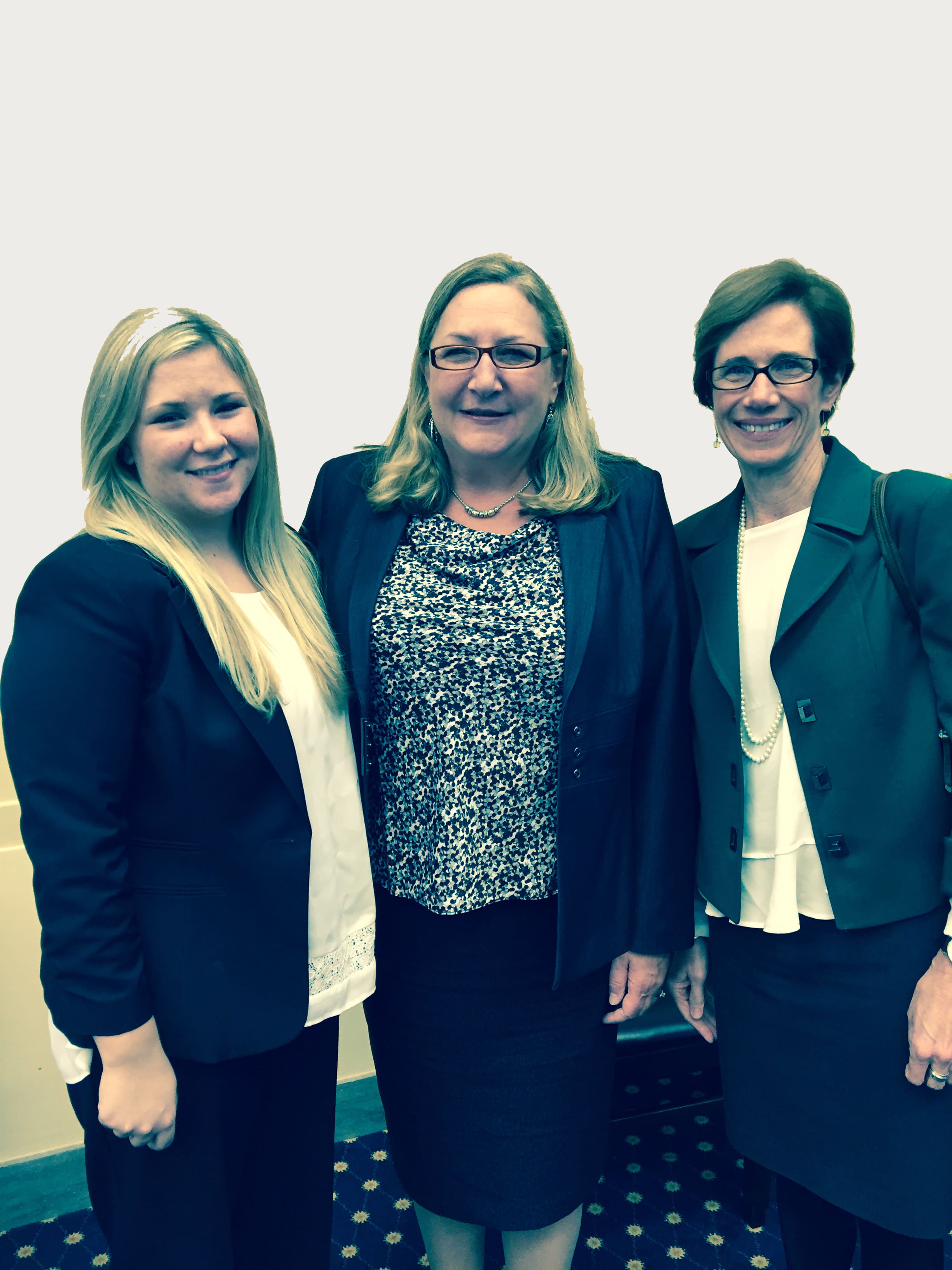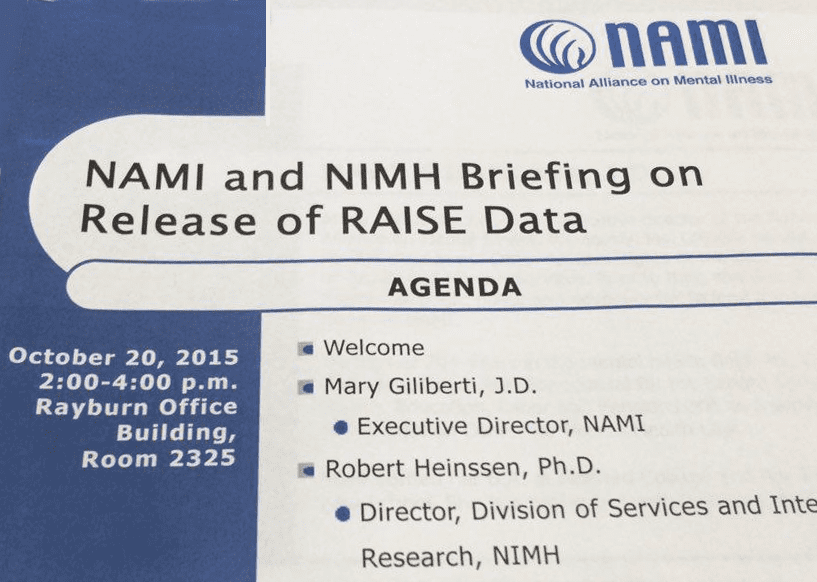October 30, 2015
By Ken Duckworth, M.D.

On Oct. 20, Maggie, a 20-year-old nursing student, bravely stepped up to the podium in the Rayburn House Office Building at a Congressional briefing organized by the National Institute of Mental Health and NAMI. Maggie shared her personal experience living with schizophrenia and persistent auditory hallucinations to the Congressional staffers, colleague organizations and media.
She was there in part to announce the release of the most highly anticipated research on mental health in years. The research consisted of two studies as part of NIMH’s RAISE research program. RAISE, which stands for Recovery After an Initial Schizophrenia Episode, is a groundbreaking initiative looking at how best to treat people with early psychosis.
One study, the RAISE Early Treatment Program (RAISE-ETP), was published in the American Journal of Psychiatry and led by Dr. John Kane and begins to provide an answer to the fundamental question: can we do better for people early in the course of living with psychosis in real world settings? The answer appears to be a clear, yes. To quote Maggie, who participated in a related trial, it made her “want to not just live…but also, want to live a fulfilling life.”
RAISE-ETP compared coordinated specialty care to regular community-based treatment. The goal was to determine whether this new treatment approach made a difference for the individuals with early psychosis. The study observed 223 individuals provided Coordinated Specialty Care and 181 individuals in regular community care. The Coordinated Specialty Care sites trained existing community mental health workers in these evidence-based treatments.
The study looked at quality of life, symptom improvement and involvement with work and school during the first two years after the study began. The findings were that people receiving coordinated specialty care had much better results than typical community-based care.

During the briefing, Dr. Lisa Dixon, who led the RAISE Implementation and Evaluation Study (RAISE-IES) explained that her study had similarly positive results, with participant hospitalizations down more than 50% and participants in school or working up nearly 40%. Dr. Dixon discussed coordinated specialty care’s success in engaging participants and improving their overall quality of life.
Findings from Dr. Kane’s RAISE-ETP study revealed the impact of the coordinated specialty care intervention was much stronger if the person had psychosis symptoms for less than 74 weeks. This shows how critical it is to make access to services easier and to improve awareness and attitudes towards people seeking help if they have symptoms of psychosis. This is consistent with previous findings that show that it matters how soon a person gets help—there is a window of time to get the best services to people with early schizophrenia.
I volunteer at the prevention Recovery of Early Psychosis Program (PREP) at Massachusetts Mental Health Center and I see what good can come from dedicated staff devoted to young people living well with psychosis. The program is welcoming and has many of the things that are in the RAISE study—early involvement of families, and support for work and school. PREP always has a wait list even though it does not advertise. As much of a privilege it is for me to be there, I know PREP and programs like it need to be proven to be a better model to encourage more funding and replication. The RAISE initiative seems to have provided answers to these questions.
RAISE showed that the coordinated specialty care services made a real difference in the following two years after the first signs of psychosis. Maggie’s mother, Maureen, said the program gave her daughter the ability to move forward with her life and the knowledge and skills she needed to help her along the way.
As NAMI Executive Director, Mary Giliberti, said at the RAISE briefing, “This isn’t just about the numbers. This is about real lives.”
Now what we need to find out is if these services improved outcomes over a longer time. For example, if it helped to keep people at a higher level of functioning in school or work over a decade. It would also be important to understand if th
ese services can help to save money over time, by reducing hospitalizations and disability. Finding ways to provide funding for these more comprehensive services will also be crucial.
We salute NIMH for conducting this research, and I look forward to following this line of research and sharing it with the NAMI community. We look forward to the continued great collaboration efforts as the field tries to understand what works and in what stage of illness. NAMI members work every day to improve attitudes and this study gives us power to push for more services like this.
I think the young woman summed up what the heart of this research showed us: “You can live your life with [schizophrenia]…it’s not hopeless.”
We’re always accepting submissions to the NAMI Blog! We feature the latest research, stories of recovery, ways to end stigma and strategies for living well with mental illness. Most importantly: We feature your voices.
LEARN MORENAMI HelpLine is available M-F, 10 a.m. – 10 p.m. ET. Call 800-950-6264,
text “NAMI” to 62640, or email. In a crisis, call or text 988 (24/7).